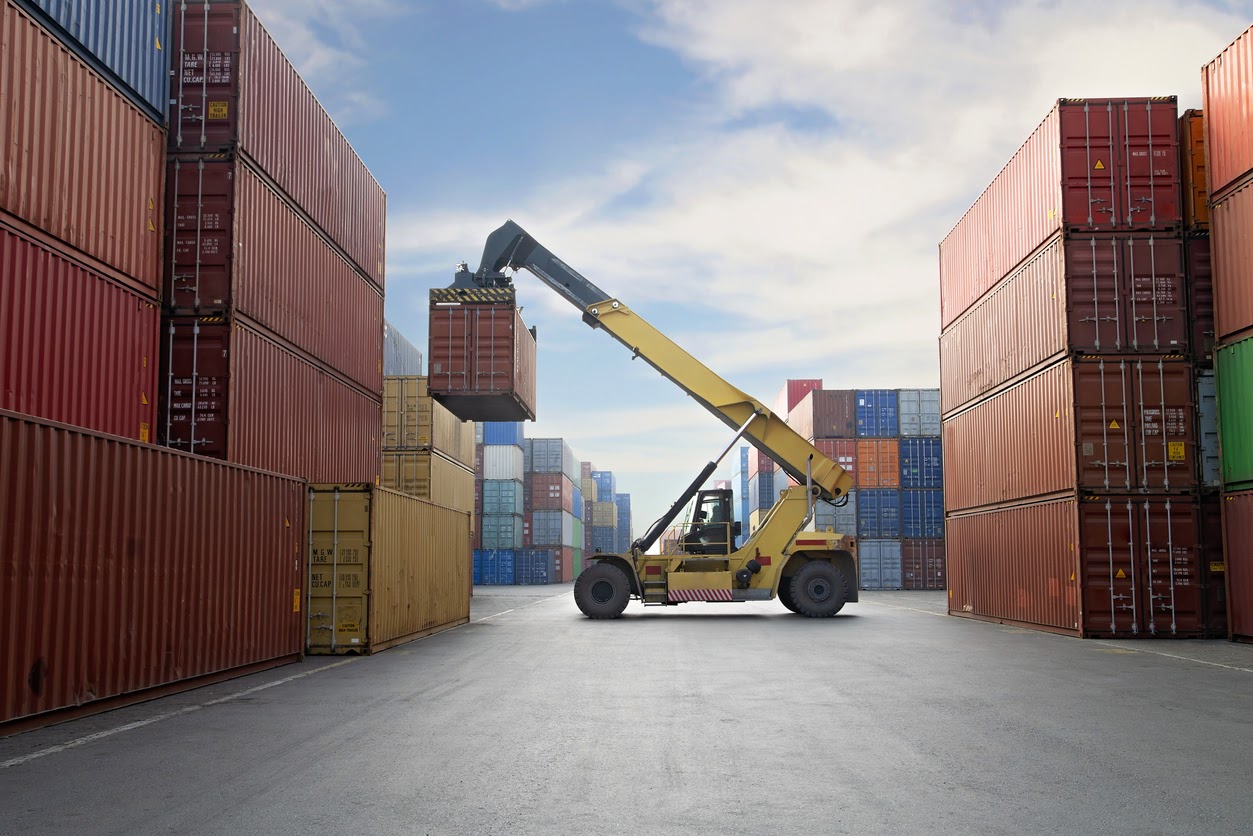How does a freight forwarding company work?
For companies that trade large quantities of goods in multiple countries and rely on seamless exporting and importing in order for a business to run smoothly, third party help when it comes to managing freight can be an essential tool. Taking care of everything from distribution and shipping tasks to completing tricky importing and exporting documentation on your behalf, help from outsourced experts can make the shipping and logistical aspects of your business much easier. This is where freight forwarding companies come in.
But what exactly is a freight forwarding company? How do they work? And how can partnering with one benefit your business? In this post, we’ll take a deep dive into the world of freight forwarding to answer all these questions and more, highlighting just how crucial these freight experts can be in your business’ overseas shipping operations.

What is a freight forwarding company?
In the simplest terms possible, a freight forwarding company is an organisation which arranges for goods to be safely and securely transported from one location to another. Acting as an intermediary or ‘middleman’ between the various stages and transportation services involved in long-distance shipping, these third party companies work with their clients to create tailored transport solutions based on timeframes, budgets and any special requirements.
While freight forwarding companies will not typically carry out shipments themselves, their value lies in their ability to establish and take advantage of the relationships they hold with a network of expert air, road, rail, and sea freight companies that can help your business create the most efficient routes possible for your goods. As each freight forwarding company has its own trusted contacts in each branch of the shipping industry – from road and rail haulage companies to airlines and transoceanic liners – they have the ability to negotiate the best possible prices. They can do this by simply using established commercial routes at knocked-down prices, or by using their connections to gain access to and/or create bespoke chartered routes that better suit your business’ logistical needs, without breaking the bank.
While some businesses may not see the value of freight forwarding companies and view the shipment of goods from one location to another as a relatively simple process involving only two separate parties – the manufacturer/wholesaler and the final customer – it’s important to remember that shipping operations can become very complex. This is particularly true when it comes to documentation and VAT settlements involved with customs checks. For this reason, aside from taking care of the physical logistics of your business’ shipment needs, freight forwarding companies will also typically handle all of the paperwork required to legally import and export your goods, including any VAT declarations and customs clearance documentation needed in the port of each country/trade zone your goods may pass through on its way to its final destination.
This process is usually much easier for freight forwarding companies than individual businesses, as most forwarders are recognised as Authorised Economic Operators. This allows them to take advantage of streamlined customs clearance procedures that individual businesses cannot enjoy, including the ability to defer the payment of import duties when necessary, ensuring goods are released promptly and not delayed or held-up in transit. This can be particularly useful if your business deals in perishable goods.
How a freight forwarding company works
The ways in which a freight forwarding company operates will vary depending on individual preferences as well as the specific services it offers. However, typically freight forwarding companies will follow a similar process. This will usually involve either all of, or a selected number of, the following procedural steps:
- Prior to collection, your chosen freight forwarder will negotiate and book the best possible form of transport for your goods – be that sea, air, rail or road freight – based on the destination, budget and other specific requirements. At this point, specialist insurance and shipment tracking options may be set up as and when required.
- Your freight forwarder will arrange to take control of your shipment from your requested origin location on an agreed date. This location can be a factory, warehouse, store, office, depot or private address. Checks will be completed at this stage to ensure all goods are itemised, packaged and labelled compliantly. The carriers selected by your forwarder will usually open your cargo to inspect it before resealing it for transit. This may also be repeated at various checkpoints throughout the journey.
- Before departure, additional goods checks will be made to ensure everything is in order and all relevant paperwork, export documentation and licences are prepared, ready for seamless inspections at UK customs authorities and each border checkpoint your shipment may pass through on its way to its final destination.
- At this point your goods will typically also be loaded onto their initial transport option by trained professionals. The pre-arranged carriers will then formally collect your goods and either start their journey by road or simply take the shipment to a carefully selected port or airport.
- Throughout their journey, your goods will go through customs checks in each country or free-trade zone they pass through. This will involve customs agents inspecting your goods and ensuring all documentation is in order. As previously discussed, these processes will likely be quicker when you use freight forwarders who are recognised as Authorised Economic Operators.
- Finally, your shipment will arrive at its destination. At this point, a separate mode of transport – typically provided by a rail or road freight company, for example – may be needed to carry your shipment from its final port or airport destination to a distribution centre, factory, warehouse or store of your choice. This final leg of your shipment’s journey will also be arranged and overseen by your freight forwarding company.
